John Greenan
Staff. Criminology and Policing.
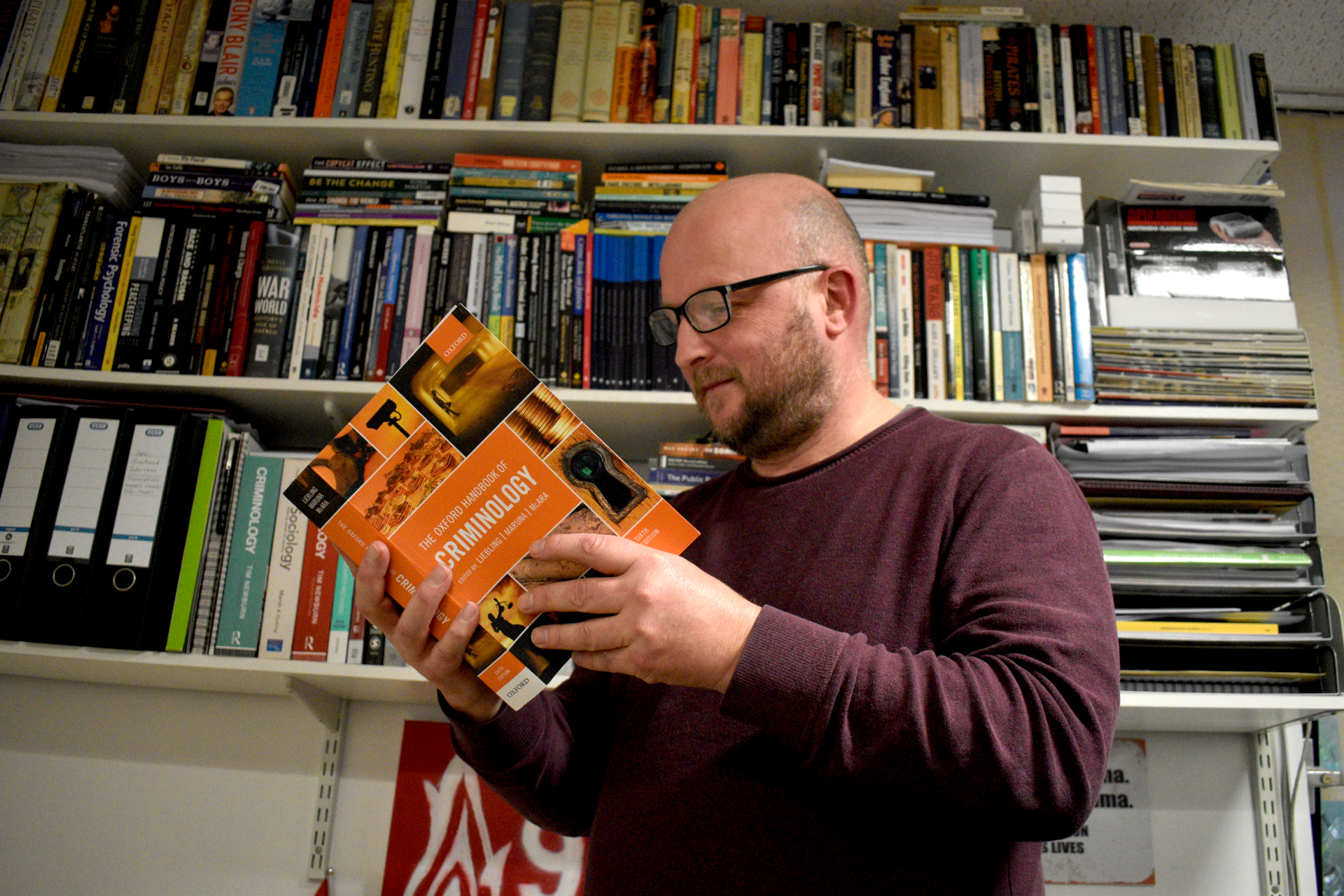
John Greenan is Lecturer in Criminology and Course Leader for the BA (Hons) Criminology and Policing at ARU. Having served for ten years in the military, and 16 in the prison service, he’s now conducting a PhD on radicalisation in prisons.
What inspired you to start working in criminology, and particularly prisons, in the first place?
In 1989, upon concluding my secondary school education, I immediately embarked on a career in the military, foregoing the pursuit of an academic foundation. My decade-long service in the armed forces led me to participate in numerous conflicts, notably the first Gulf War, operations in Bosnia, and engagements in Northern Ireland. I served in Northern Ireland the exact time when the Good Friday Agreement was being implemented, which was really interesting and insightful.
After concluding my military service in 1999, I initially yearned for the structured and disciplined environment I had left behind. Feeling somewhat adrift in civilian life, I decided to join Her Majesty's Prison and Probation Service (HMPPS). Over the course of approximately 16 years, I served in various capacities across several prisons, including roles involving the management of juvenile prisoners (aged 15 to 17), reception duties, night shift management, to security operations and residential units. I also moved through the ranks into prison management. In the final five years of my tenure, I transitioned to a role at HMPPS headquarters, focusing on counter-terrorism efforts. In this capacity, I managed the risk associated with extremism and terrorism in prisons located in the East of England and oversaw inmates serving sentences under the Terrorism Act.
Assuming this significant position and holding the responsibility of being a subject matter expert, this designation initially intimidated me as I did not consider myself an expert in the field. Recognizing that prisons were relying on my advice and guidance to manage risks associated with terrorism and extremism, I swiftly acknowledged the need to augment my expertise. While the organisation offered occasional conferences and knowledge-sharing from predecessors, it was largely my responsibility to seek further education. Consequently, I independently financed and pursued a master’s degree in Counter-Terrorism, dedicating my personal time to study. The experience was enlightening and ignited in me a passion for academia. From initially having minimal academic background, I diligently applied myself and was ultimately awarded a distinction for my efforts.
I took great pride in this achievement, and my supervisor recognised my potential, encouraging me to pursue further academic endeavours. Heeding this advice, I embarked on a doctoral journey at Royal Holloway, University of London. I had the privilege of being supervised by Nick Hardwick, a former Chief Inspector of Prisons, and Dr John Morrison, a renowned expert on terrorism. They accepted me into the PhD program, where I focused my research on the conditions that influence Islamist radicalisation within prisons in England and Wales.
It was during my initial stages as a doctoral candidate that I sought a transition from my operational role into academia. I understood the importance of my work needing independence. An ARU criminologist opportunity arose last year, and I took the leap and applied. I am thrilled to be here and the past 18 months have been amazing.
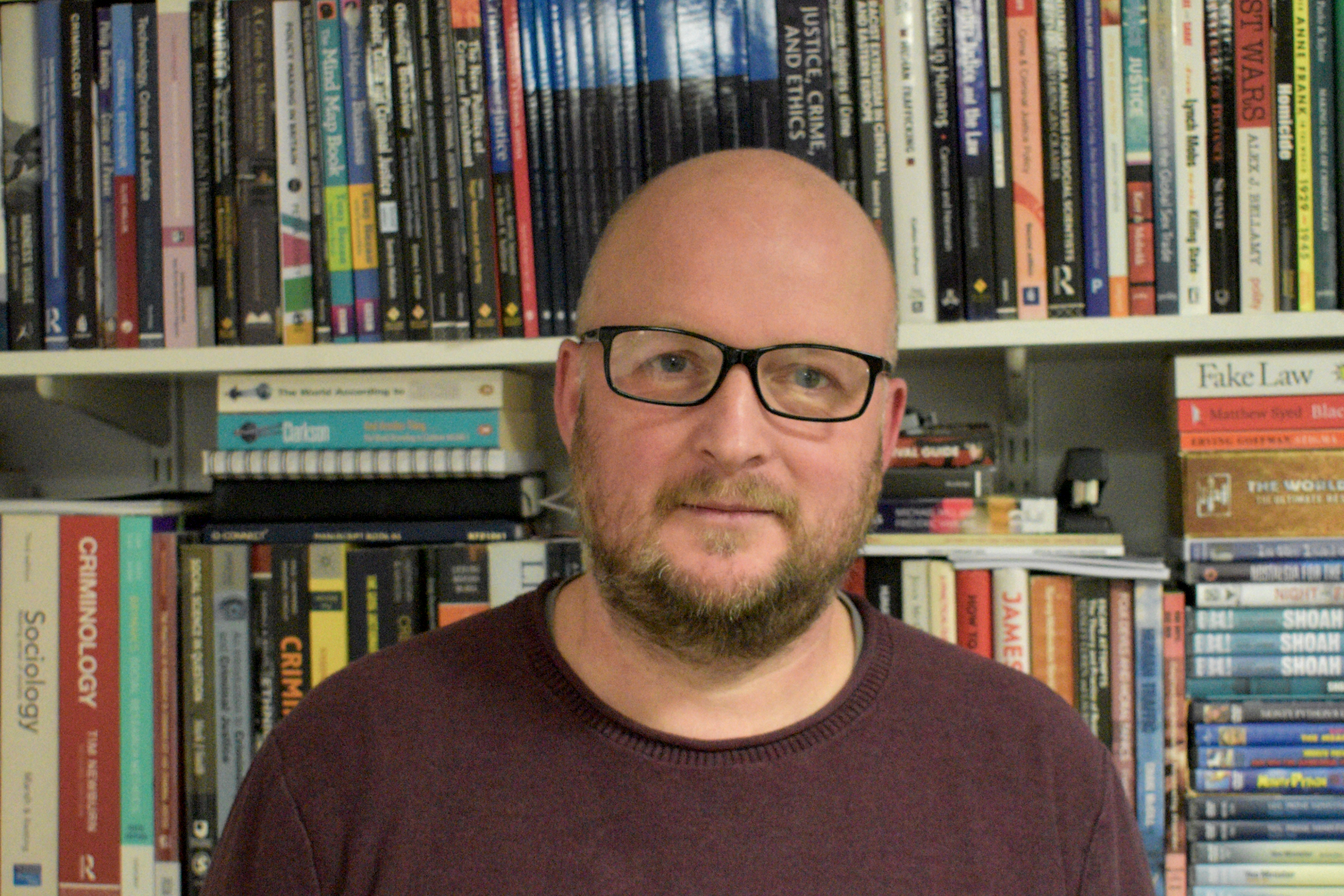
How far have you progressed with your PhD, and is there much existing research in the area of radicalisation?
My research is currently in progress, I am at the juncture of preparing to submit applications for ethical approval and access to conduct research within prisons. I have maintained open lines of communication with senior leaders within HMPPS, who have expressed full support for my innovative transition and have also endorsed my research proposal.
The subject area I am exploring is notably under-researched, with scant literature addressing the conditions influencing radicalisation within prisons over the past two decades. Much of the existing research on terrorism and the adoption of extremist ideologies has predominantly focussed on psychological or individual factors, such as the backgrounds and mental capacities of prisoners, examining why they may be susceptible to radicalisation. The environmental conditions within prisons, while acknowledged as influential, have not been extensively researched.
A particularly inspiring piece of work that resonates with my research direction is conducted by an academic named Mark S Hamm. His research on Folsom Prison in California, which comprises two facilities with notably different conditions, revealed that prisoners in harsher environments are more prone to radicalisation. My research aims to build upon this theory by delving deeper into specific factors identified as risks, such as gang presence, bullying, illicit trade, lack of facilities, and assessing their potential impact on radicalisation. I will also be analysing positive conditions such as family visits, education, positive peers, and good staff relationships.
Did you experience much radicalisation during your time in the prison service?
In some of the prisons where I have worked, instances of radicalisation or extremism were minimal or entirely absent. For example, in progressive regime prisons, there was scant evidence of individuals attempting to sway others towards a particular ideology, which is what I refer to as radicalisation. However, a contrasting scenario is observed in Category C training establishments, which are characterised by larger prisoner populations and greater deprivation, as well as in Category B and certainly in Category A prisons. In these settings, there is more intelligence regarding behaviours indicative of radicalisation that necessitate management.
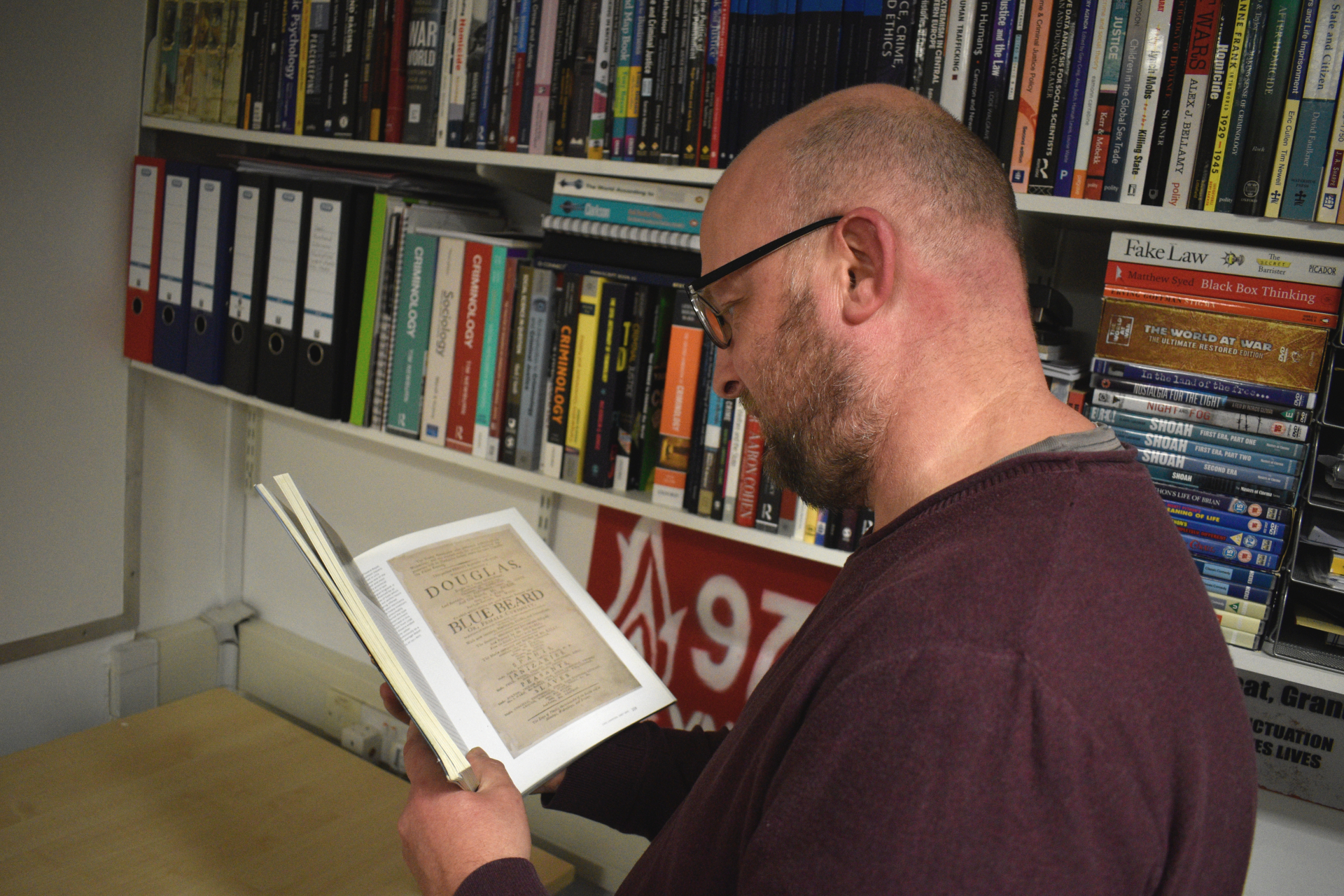
How do students on ARU criminology and policing courses benefit from your experience?
I am currently the module leader for the Policing and Counter Terrorism module in undergraduate courses, as well as for two modules in the MA courses. I find immense enthusiasm in teaching students. The feedback I received last year was exceptionally positive. Students appreciated how discussions on a particular topic would seamlessly transition into recounting relevant personal experiences from my professional background. They highlighted that such firsthand accounts significantly enriched the learning experience by providing practical context to theoretical concepts.
During graduation ceremonies at both Chelmsford and Cambridge, the accolades from students who had undertaken the modules under my guidance were overwhelmingly positive. Such commendations are profoundly gratifying, and I am inclined to cherish and continue this enriching experience of teaching.
What’s the most valuable thing you took away from your own education?
I did not re-engage with academia until my late 40s, leading me to consistently advocate that it is never too late to pursue one's academic interests. I emphasise to individuals the importance of two key principles: hard work and organisation, which hold true both in professional practice and in academic pursuits. Initially, I had apprehensions about entering academia at a later stage and experienced feelings akin to imposter syndrome, doubting my inherent abilities. However, my recent experiences have underscored the lesson that, through dedicated effort and organising well, one can surmount any challenge.
I remember for my MSc, my first paper, I think the pass mark was 50%, and I got 50%. I was celebrating because I passed. But the lecturer advised me to “Read the feedback. Do what I say and you will improve your grades.” So I focused on that, got myself organised and worked really hard, and my grades started getting better and better, to the point where I achieved what I thought was impossible, which was an MSc award of distinction.
I haven't really looked back since, and I try to bring that into everything that I do now, whatever challenge lies ahead.
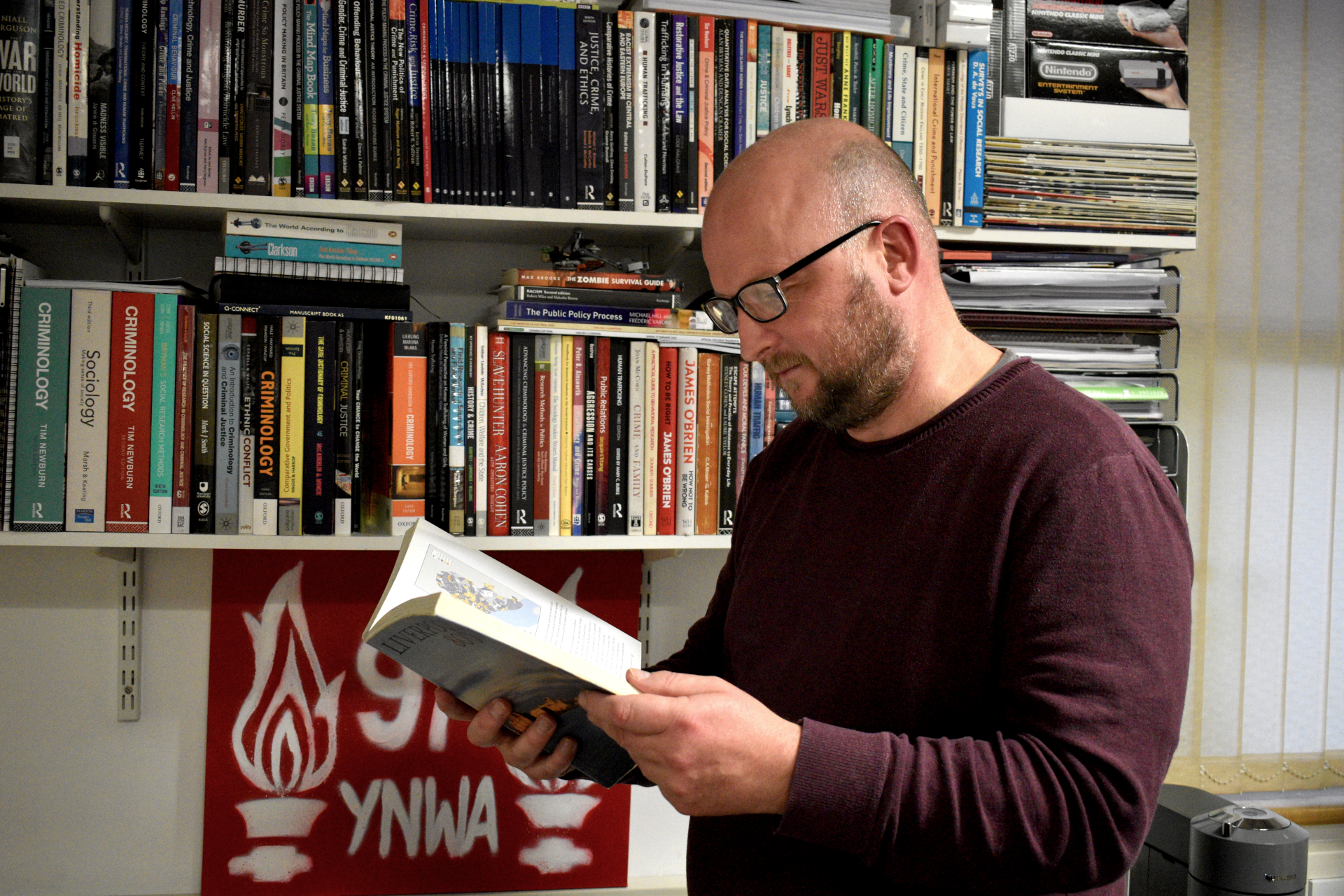
What piece of advice would you give to your younger self?
I would always say to anyone who's reading this, especially if you’re young, distance themselves from the mindset that dismisses the importance of education and succumbs to peer pressure, often described as being "too cool for school.". Realise your potential really early and you’ll flourish. Reflecting on my own journey, I acknowledge that in the initial years, including my time in the military, I too occasionally subscribed to this mindset. Across various spheres, including academia, there are individuals who take pride in resisting established systems and undertaking minimal effort. If I could offer advice to my younger self, I would tell him to ditch that attitude, I think I'd be a little bit further along in my career.
Additionally, some individuals may find themselves entrenched in an "Us vs Them" mentality, which can be counterproductive. I am acutely aware of this and, therefore, when interacting with my students, I emphasise my role as a supportive figure. I regard them not merely as mere students but as budding academics. By maintaining such focus and fostering a collaborative environment, I believe one can consistently engage and inspire individuals on their academic journey.
What have you learned about Cambridge that other people might not know?
Something I didn't know about Cambridge, which I found really interesting, was it was one of the first cities in Britain to have a prison or a gaol. This dates back to the 14th century, when the gaols originally held people prior to taking them to the court. They used the castle as a gaol, and in the 1800s they had a prison there. They also had an all-county female prison that went to the Cambridge Borough Gaol, and in the 1800s there was one on Parker’s Piece as well. It cost £25,000 to build, and was originally a gaol for Cambridge. So Cambridge has a long history, longer than a lot of other cities in the country, of having a gaol.
What projects are you currently working on, both at ARU and outside?
In September I successfully hosted a conference between ARU and Eastern Region Special Operations Unit (ERSOU) Police. The Prison Intelligence Conference was held at the Young Street campus. Nearly one hundred people attended including practitioners, senior management, and senior leaders within police, prison and probation, and also MI5. Collaboration in this field is limited and I am hoping this new relationship will blossom into annual events and research projects.
In September, I had the opportunity to attend the European Society of Criminology Conference held in Florence. At the conference, I presented a paper that is closely related to the literature review for my PhD. The presentation proved to be highly successful, allowing me to establish numerous connections within the field. In November, I am scheduled to travel to Philadelphia to participate in the American Society of Criminology conference, where I plan to discuss the same paper, this time focusing on its implications and relevance to the American context.
Last evening, I had the privilege of attending the launch event for the newest edition of The Oxford Handbook on Criminology at Cambridge University. This interaction has been beneficial in promoting awareness of my identity and the work I am engaged in. I am currently in the process of inviting a distinguished criminologist to serve as a keynote speaker for our Level 6 students in April next year.
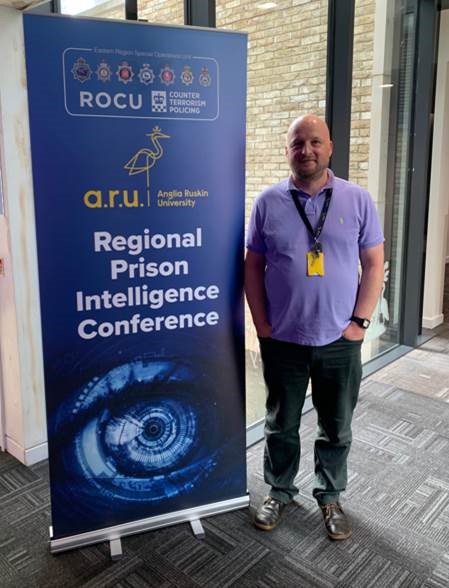
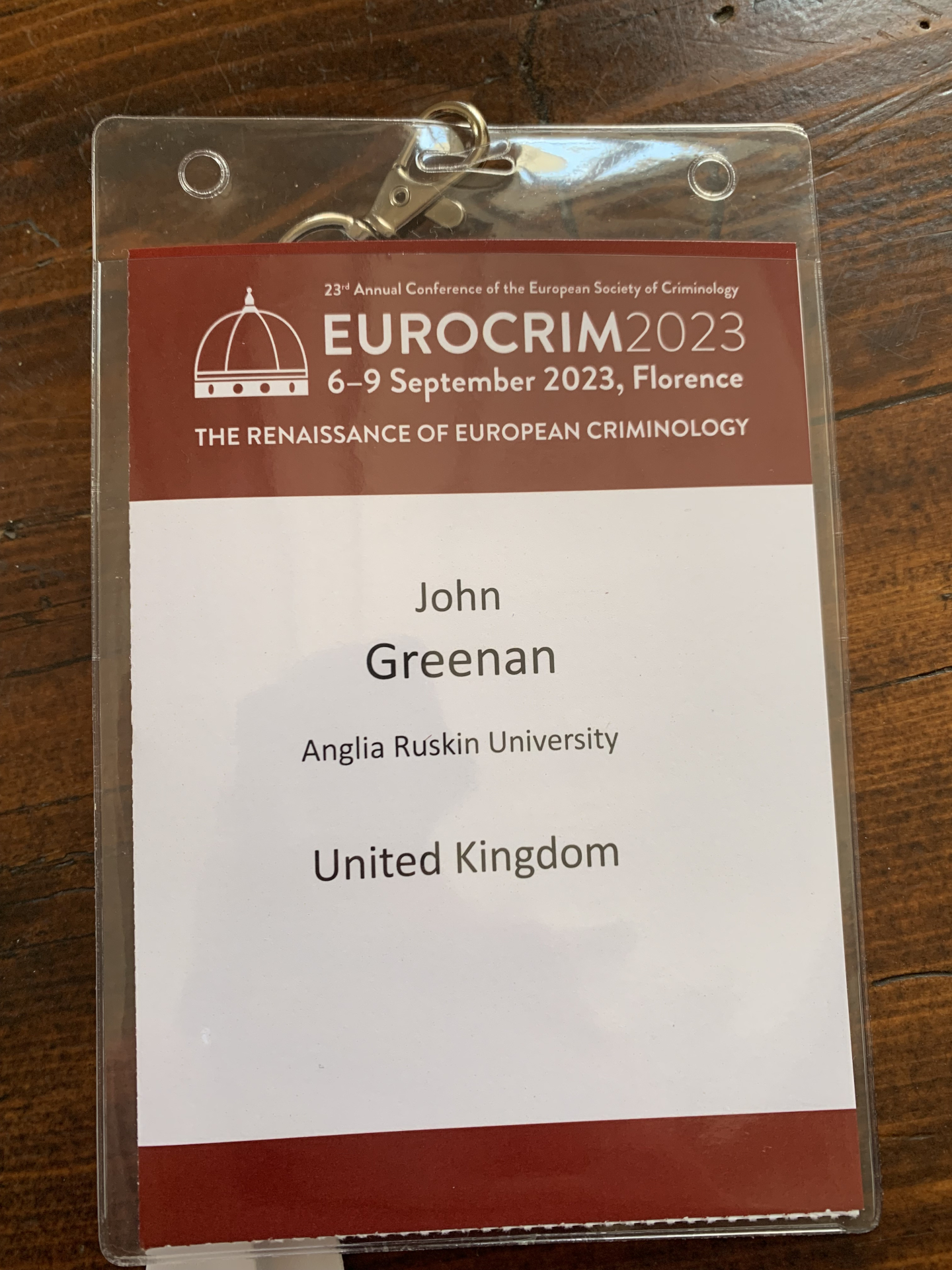
Where now

ARU website
BA (Hons) Policing and Criminal Justice
Jump-start your career in the criminal justice sector with our specialist Criminology and Policing degree in Cambridge. We’ll help you work towards your career goals from day one, and give you opportunities to engage with professionals from the criminal justice sector.
Fine out more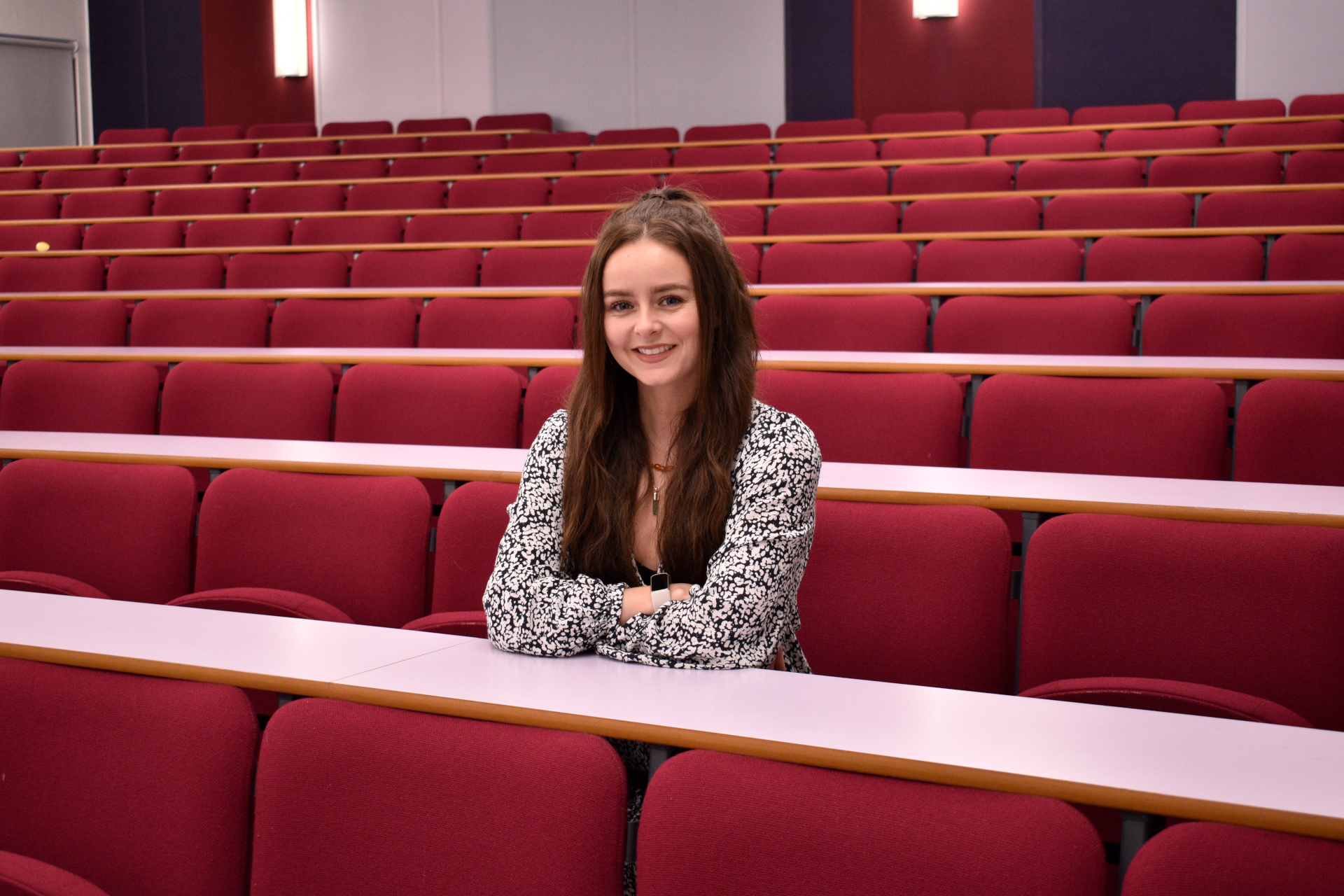
Our people
Lauren Tabbinor
Lauren graduated from our BA (Hons) Criminology in 2014, and has since worked mostly in the education sector, including a role with the Prince’s Trust and Student Ambassador Co-ordinator at ARU.
Meet Lauren